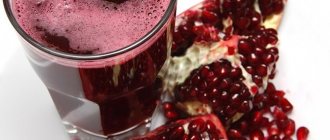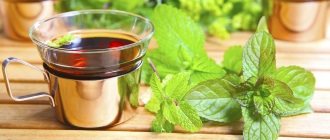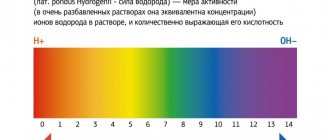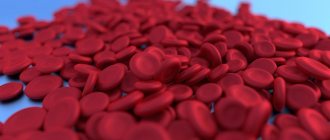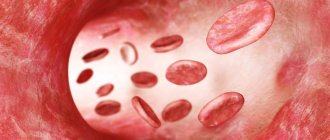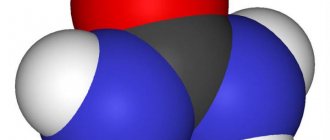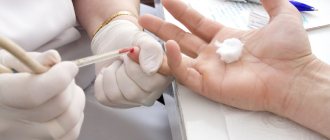According to the World Health Organization (WHO), in recent years there has been a trend towards a decrease in hemoglobin levels in the average person on the planet.
Although the value of hemoglobin level is influenced by many factors, including individual factors, in general, a low level indicates certain health problems.
Among the reasons causing a decrease in hemoglobin levels, in addition to a number of specific diseases, an important place is occupied by a lack of nutrients caused by an unbalanced diet.
There are certain foods that need to be consumed to increase the level of hemoglobin in the blood. First of all, attention should be paid to pomegranate, which we will talk about in this article. According to research , pomegranate actually has the property of raising hemoglobin levels.
Effect on the circulatory system
Pomegranate, as well as pomegranate juice, has a beneficial effect on the level of hemoglobin in the blood. This is due to the content of a huge amount of useful substances, including anthocyanins.
The effect of the beneficial substances contained in pomegranate promotes the production of blood and its saturation with oxygen. This is how the process of hematopoiesis occurs, the level of hemoglobin in the blood increases. By and large, it doesn’t matter whether we are talking about the fruit itself or pomegranate juice.
In addition to anthocyanins, other beneficial substances contained in pomegranate are also important. These include the following:
- cellulose;
- proteins;
- fats;
- amino acids;
- minerals - calcium, magnesium, iron, selenium, phosphorus, potassium, etc.;
- vitamins - groups of vitamins A, B, C, E, PP.
Due to the high concentration of nutrients and the high degree of their absorption by the body, pomegranate improves the functioning of the cardiovascular system and the quality of blood in general. This is expressed in the following beneficial changes noted when starting the systematic consumption of pomegranate:
- blood rejuvenation;
- improving tone and strengthening blood vessels;
- decreased blood pressure;
- counteracting the development of angina pectoris;
- blood thinning;
- improved blood flow;
- preventing the development of atherosclerosis;
- improving blood circulation in the brain.
Harm of pomegranate
Contraindications to the use of the healthy fruit and the drink prepared from it are:
- increased acidity of gastric juice;
- chronic diseases of the gastrointestinal tract in the acute stage - peptic ulcer, cholecystitis, gastritis, pancreatitis, erosive damage to the mucosa;
- tendency to constipation;
- partial intestinal obstruction and diverticulosis;
- acute inflammatory processes of the kidneys;
- urolithiasis and cholelithiasis.
The recommended dosage is reduced with increased blood viscosity. Contraindications are not absolute; if the condition is satisfactory, you can eat a handful of grains or drink a few sips of juice.
You should not give the crusts to children - they contain alkaloids, which can cause intoxication. Like all red fruits, pomegranates have an increased allergenic hazard. When first “acquainting” with taste, it is necessary to take into account the possibility of developing individual intolerance.
Other useful properties
Pomegranate also has other positive properties, expressed in a general strengthening effect for the body, supporting and restoring the nervous, lymphatic and genitourinary systems, giving the body energy and increasing vitality.
The secret of longevity of the inhabitants of the Caucasus and Transcaucasia is associated with the daily consumption of pomegranate.
See the photo for more details:
What is the power of pomegranate?
As already mentioned, only natural juice will bring benefits. It is better to prepare it yourself from grains, since it is not always possible to buy a truly real product in stores.
Pomegranate fruits, and therefore drinks, are highly valued. Pomegranate has a rich, varied component composition.
Compound:
- amino acids;
- vitamins from group B;
- potassium;
- chromium;
- ascorbic acid;
- manganese;
- retinol;
- magnesium;
- calcium;
- selenium;
- copper, etc.
Important! Pomegranate juice has astringent properties, so if you are prone to constipation, it should be consumed with extreme caution. It is better to consult a doctor so as not to aggravate the clinical picture of the disease.
Beneficial features:
- normalization of reproductive function;
- strengthening the immune system;
- positive effect on the functioning of the nervous system;
- replenishment of deficiency of vitamins, micro- and macroelements;
- prevention of malignant pathologies;
- promoting weight loss;
- increased hemoglobin level;
- treatment of diarrhea.
The beneficial properties of freshly squeezed pomegranate juice do not end there. There are many more of them. And while many people have heard about the benefits of this drink, only a few know about the other side of the coin. And existing contraindications and warnings should be taken into account so as not to harm your health.
How much should you eat?
How much pomegranate should you eat daily? There are no special instructions on how to take the fruit specifically and exclusively to raise low hemoglobin levels in the blood. Everything is good in moderation.
To maintain hemoglobin levels at an acceptable level for health, you need to eat 1 fruit per day or consume 250 ml of natural juice .
If there is a significant lack of vitamins or an urgent need for regeneration of the body, you can slightly increase the level of consumption to 1.5 - 2 fruits per day or 400 ml of juice. But it is important to remember that even 50 ml of natural pomegranate juice daily leads to strengthening and rejuvenation of the body.
Myth No. 1. Pomegranate juice is beneficial
Not really. The pomegranate itself actually contains a lot of substances that have antioxidant properties: flavonoids, anthocyanins, polyphenols, catechins and punicalagins. Plus, 100 g (a large handful) of grains contains 21% of the daily value of vitamin K, 17% of vitamin C and 16% of fiber.
The situation is different with pomegranate juice. “There is a general rule: juices are drinks with a high sugar content - 100 ml of pomegranate juice contains about 14% - and a low content of vitamins. Therefore, they are more harmful than useful,” says Alexey Paramonov, gastroenterologist at the Rassvet clinic. In other words, you can drink occasionally, but whole grains provide more benefits.
How to drink pomegranate juice correctly?
Pomegranate juice is one of the 7 most beneficial juices for blood vessels and the heart. Freshly squeezed or bottled juice is suitable, but it must be directly pressed and not made from concentrate. With systematic consumption, the hemoglobin level will gradually increase.
To avoid the negative effects of consuming pomegranate juice on the teeth, digestive system and gastrointestinal tract, it is important not to systematically exceed the recommended amount of consumption.
In addition, experts say that the most suitable time for taking pomegranate in a course is autumn and spring, during periods of weakened immunity . This is due to the positive effect of pomegranate on the immune system.
How to choose the right pomegranate juice if you really want it
Ideally, of course, cook it yourself. For one glass you will need 2-3 fruits. A juicer, hand citrus press or blender will help. But if you can’t make a drink at home, buy a freshly squeezed one at the market (it’s better if they prepare it in front of you).
As a last resort, find a high-quality option in the store: it should be labeled “100% pomegranate juice,” directly pressed, with a simple composition (that is, the drink should not contain anything other than pomegranate), cost no less than 160-200 rubles per liter and produced from September to November.
Paramonov Alexey Dmitrievich gastroenterologist
, Ph.D.
10 more foods to include in your diet
To achieve the best result, in addition to pomegranate, you should include in your diet other food groups that help normalize the functioning of the cardiovascular, immune, endocrine and reproductive systems, namely:
- fish - wild fish grown without direct human intervention are the healthiest, first of all you should pay attention to salmon, sturgeon, cod, pollock, whitefish, nelma, muksun, omul, etc.;
- nuts - walnuts, hazelnuts, hazelnuts, cashews, pistachios, Brazilian;
- porridge - rice, millet, buckwheat, oatmeal, rolled oats, etc.;
- dairy products - adults are better off with low-lactose dairy products;
- oils - olive, linseed, sesame, etc.;
- other fruits, citrus fruits, berries and vegetables (apple, lemon, beets, pumpkin, grapes, watermelon, peaches, etc.);
- green tea - in small portions, without sugar;
- cognac - rarely and in limited quantities;
- dry red wine - experts recommend limiting yourself to one glass per day and two on the occasion of a feast;
- natural coffee - in small quantities.
In addition, the absence of bad habits, especially smoking, stress, regular exercise and fresh air, is very important for heart health and blood composition.
Eating pomegranate to increase hemoglobin
Recipes for iron absorption in the treatment of iron deficiency anemia:
- For young women and men whose disease is caused by temporary health problems. In the morning they eat half the fruit with seeds, and in the evening 10 walnut kernels.
- Universal method. Mix 20 g of freshly squeezed pomegranate juice, 0.5 tsp. lemon, 2.5 tbsp. l. warm water, sweeten with honey. Drink during the day.
- With a healthy stomach, after taking antibiotics. Mix lemon and pomegranate juices in a 1:1 ratio. Dilute with water 1:3, sweeten with honey. Take 2-4 tbsp per day. l.
CAVIAR, SEAFOOD
Clams, shrimp, scallops, squid, caviar - when sorting seafood into types and subspecies, always keep in mind that heme iron is absorbed better: from fish and derivatives - by 9-11%.
You can't stop living beautifully. Especially when 100 g of game covers 66% of the daily requirement for iron, and oysters even contain 5.5 mg / 100 g. With shrimps and crustaceans, everything is not so rosy, but they can be eaten more and more regularly. Especially when sulfur-containing acids in fatty fish and seafood increase the bioavailability of iron.
MEAT
Hemo-iron (contained in products of animal origin) is absorbed much better. Beef, veal, and rabbit meat should take an honorable, regular place in the diet if you want to raise your hemoglobin levels. An additional bonus from meat is that animal proteins help blood cells recover and return to normal.
TAHIN HALVA
This is halwa made from sesame seeds. In addition to vitamins E, A, B1 and B2, it also contains microelements: potassium, zinc, copper, phosphorus, sodium, magnesium and iron. Sesame is one of the champion products in terms of calcium content. And at the same time, it contains about 15 mg of iron per 100 g. You are unlikely to add such a quantity of seeds in their pure form to a salad. Therefore, salvation can be found in halva.
By the way, sunflower halva also contains a lot of iron, although it is inferior to tahini in this matter.
BEET
Beetroot significantly increases hemoglobin levels. The amount of iron in the raw root vegetable is not as high as in concentrated beet juice. The copper in beets additionally helps the body produce hemoglobin.
To normalize its level, it is enough to consume at least 30 grams of beet juice daily. Remember, however, that you should not drink it immediately after preparation. For better absorption, it is recommended to dilute beet juice with carrot or apple juice, gradually increasing the proportion of the former.
By the way, if we consider only plant foods to increase hemoglobin, then carrots, potatoes, cabbage, broccoli, tomatoes, cauliflower and pumpkin will work best. They contain acids (citric, malic, ascorbic), which help iron to be absorbed.
For best results, all herbal products are best consumed raw. Either cook by steaming, stewing, baking or in a slow cooker with minimal loss of nutrients.
How to take pomegranate juice to increase hemoglobin
To increase hemoglobin, pomegranate juice should be taken according to a certain schedule. Increasing the dosage is fraught with health complications. It is permissible to drink no more than 1 tbsp per day. pomegranate juice. Take half an hour before meals. This will help avoid increased gas formation. The duration of stabilization of hemoglobin levels depends on the nature of the manifestation of the disease.
To increase the value of the drink, you can dilute it with beet juice
Freshly squeezed
Freshly squeezed pomegranate juice is the most beneficial. It is believed that it contains more useful substances. A prerequisite for administration is preliminary dilution with water. The optimal ratio is 1:1. It is equally important to have time to consume the drink within 20-30 minutes after preparation. With prolonged contact with air, oxidative processes occur in it, which adversely affects the composition. If you have low hemoglobin, you need to drink pomegranate juice systematically. But the duration of the treatment course should not exceed three months.
Bottled
There are several types of store-bought pomegranate juice. Before use, you need to familiarize yourself with the composition. The concentrated drink is diluted with water. If it is already diluted in production, then there is no need to carry out additional manipulations with it. Reception is carried out according to the standard regimen - 200 ml per day.
Does pomegranate juice and pomegranate raise hemoglobin?
Hemoglobin is a complex iron-containing protein that ensures gas exchange in cells. When its level in the blood decreases, the risk of developing various pathologies increases. The main reason for the insufficient functioning of hemoglobin is a lack of iron. This deviation occurs when the diet is poor and the absorption of the substance by the digestive system is impaired.
Since pomegranate juice contains a large amount of iron, it has the ability to increase hemoglobin levels in the blood. In addition to this, the product normalizes heart function, strengthens blood vessels and lowers blood pressure. Pomegranate juice is consumed not only to treat low hemoglobin, but also for preventive purposes. In addition, the drink perfectly eliminates the feeling of thirst. The person’s condition stabilizes almost instantly. The effect may persist for some time after the treatment course.
Comment! To stabilize iron levels, women during menstruation need to drink 1-3 tbsp. pomegranate juice a day. This will significantly improve your well-being.
Signs of iron deficiency anemia
Iron deficiency anemia is a disease accompanied by a disruption in the process of transporting oxygen to tissues. It develops as a result of severe blood loss or lack of iron in the body. Pregnant women, children and people with poor diets are at risk.
Typical symptoms of iron deficiency anemia include:
- pale skin;
- dry skin;
- increased fatigue;
- distortion of eating habits;
- decreased performance;
- rapid pulse;
- dyspnea.
Diagnosis of the disease involves taking a general blood test and identifying ferritin levels. Sometimes an additional endoscopic examination of the digestive system is required.
Restrictions and contraindications
Not everyone can drink pomegranate juice if they have anemia. In some cases, it is harmful to health. Contraindications include:
- gastritis and peptic ulcer;
- age up to one year;
- increased stomach acidity;
- allergic reaction;
- tendency to constipation and hemorrhoids.
During pregnancy, the possibility of introducing pomegranate juice into the diet to increase hemoglobin is discussed with the doctor individually. It is also advisable to limit pomegranate consumption during exacerbation of gastrointestinal diseases. If there is increased sensitivity of tooth enamel, avoid pomegranate juice completely. It should only be drunk through a straw.
Attention! Due to its rich composition, the fruit has the ability to strengthen the immune system.
.
Is it possible to eat pomegranate if you have high hemoglobin?
An increase in hemoglobin in the blood is the same pathological condition as its decrease. In this case, the excess substance begins to poison the body. And when the indicator exceeds 190 g/l, blood viscosity increases. Due to this, vital organs stop receiving oxygen in the required quantity.
When hemoglobin increases, the following symptoms occur:
- headache;
- itching and dry skin;
- frequent nosebleeds;
- decreased visual acuity;
- sleep problems;
- joint pain.
Since pomegranate juice increases hemoglobin, it should be completely excluded from the diet. Otherwise, it will worsen the condition. You will also need to take medications and avoid other foods that increase iron levels in the blood.

